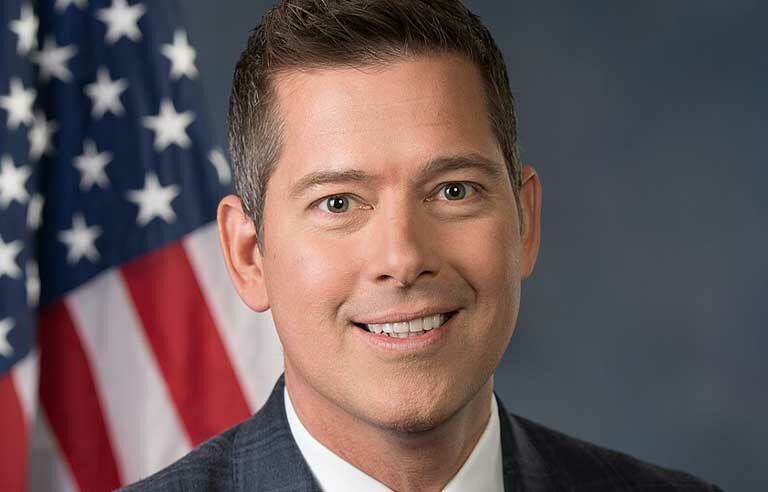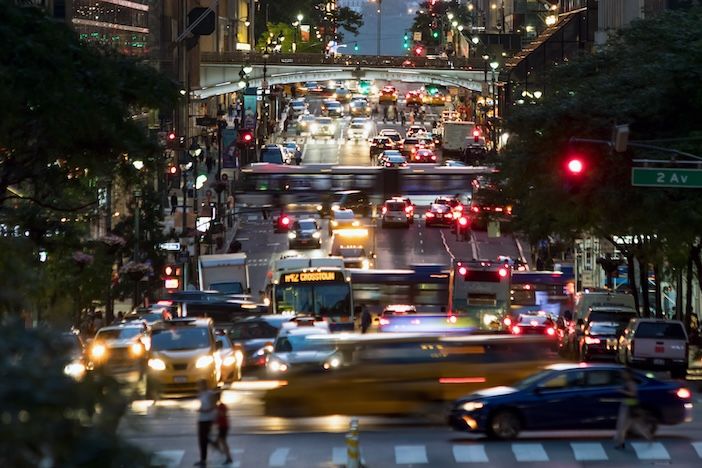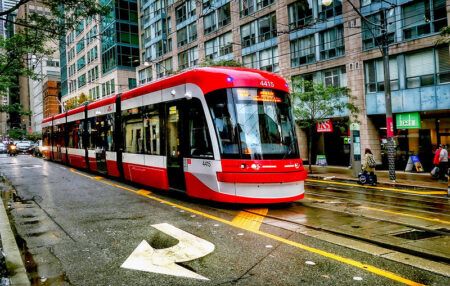In a dramatic shift of federal policy, Transportation Secretary Sean Duffy announced today (February 19, 2025) he is rescinding federal approval for New York City’s controversial congestion pricing program, setting the stage for what could become a protracted legal battle over the future of urban toll programs.
Less than an hour after Secretary Duffy released his statement, New York’s MTA indicated it had filed a law suit to attempt to stop the order. MTA Chair and CEO Janno Lieber praised the toll scheme and vowed to fight back against the administration’s “baseless effort.”
Lieber’s statement read: “Today, the MTA filed papers in federal court to ensure that the highly successful program – which has already dramatically reduced congestion, bringing reduced traffic and faster travel times, while increasing speeds for buses and emergency vehicles – will continue notwithstanding this baseless effort to snatch those benefits away from the millions of mass transit users, pedestrians and, especially, the drivers who come to the Manhattan Central Business District,”
The tolling program, which has been operational for a little over a month after years of discussion, began on January 5, 2025. It is enforced by a network of over 1,400, installed by TransCore, which monitor Manhattan’s entry points – charging vehicles entering south of 60th Street.
In a letter to New York Governor Kathy Hochul, Duffy argued that previous FHWA approval for the program “exceeds the authority authorized by Congress” under the Value Pricing Pilot Program (VPPP).
“I share the President’s concerns about the impacts to working class Americans who now have an additional financial burden to account for in their daily lives,” Duffy wrote, noting that highway users “have already financed the construction and improvement of these highways through the payment of gas taxes and other taxes.”
President Trump backed the letter on social media writing, “CONGESTION PRICING IS DEAD. Manhattan, and all of New York, is SAVED. LONG LIVE THE KING!”
But in a passionate speech in a New York subway station on Wednesday Gov Kathy Hochul also vowed to fight the order: “New York hasn’t laboured under a king in over 250 years and we sure as hell are not going to start now. This is an attack on our sovereign identity, our independence from Washington. We are a nation of states. This is what we fought for. We are not subservient to a king or anyone else out of Washington. So this is the fight we’re in. It’s all about our sovereignty.”
The MTA suit, filed Wednesday in Manhattan federal court, names Duffy and Federal Highway Administration Executive Director Gloria Shepherd, as well as their respective agencies — and states that enacting congestion pricing as having “embarked on a bold new program” to reduce congestion and promote mass transit.
The Secretary’s primary arguments against the congestion pricing center on two key points. Firstly, he argues that the “cordon pricing” method used in Manhattan is unprecedented and provides “no toll-free option for many drivers who want or need to travel by vehicle in this major urbanized area.” Secondly, he says the tolls appear “to be driven primarily by the need to raise revenue for the Metropolitan Transit Authority (MTA) system as opposed to the need to reduce congestion.”

However, it’s likely to be argued that the VPPP was specifically created as an experimental program, and Congress intentionally left the term “value pricing pilot program” undefined to enable flexibility in implementation.
Furthermore, the Secretary’s assertion about revenue generation may face scrutiny. While acknowledging that “preliminary project data published by the MTA reports a congestion reduction benefit,” Duffy argues that the toll rates are driven by MTA revenue targets rather than congestion management goals. But it could be argued that transit system improvements which the MTA funds will directly contribute to congestion reduction.
The FHWA will now work with New York State Department of Transportation and its project sponsors to discuss what Duffy calls “the orderly cessation of toll operations.” However, with many millions already invested in the project, legal questions remaining and billions in projected revenue at stake, MTA’s challenge is likely to gain significant momentum.
The outcome of the case could have far-reaching implications for cities across the US considering similar congestion pricing schemes as tools for managing traffic and funding public transit improvements.





